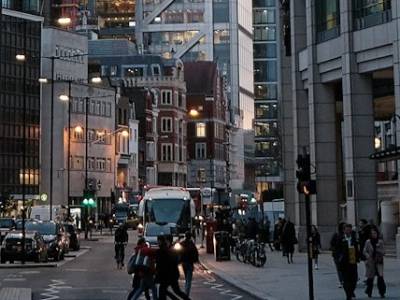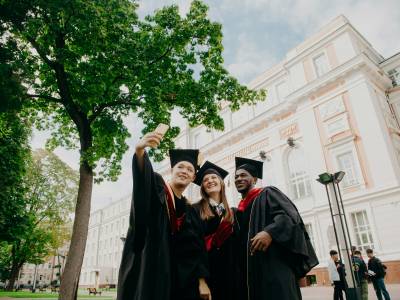[Updated July 2019 with some new visa information]
In an increasingly globalized world, students from all corners of the world are migrating to other countries to do pursue their MBAs. And for myriad reasons, many will choose to stay in their study abroad locale after graduating. But work visas can be legally vexing for many students, depending on their country of citizenship and the laws of the country in which they wish to remain.
Here’s a rundown of the requirements for work visas in countries popular among MBA students:
USA: The OPT visa and other options
For a foreign student who’s completed his or her MBA in the US, there are a few options. The first is a legal period of 12 months after graduation, called the Optional Practical Training (OPT), which allows the graduate to work, intern or freelance in his/her field of study.
One of the most common ways for a graduate to stay in the US is to be sponsored by an employer for an H-1B visa. It is used by the vast majority of international MBA graduates from US schools, and provides work authorization for up to three years. Since the government has tightened its visa policies and reduced the annual quota for the number of H-1B visas available, it requires stringent planning from you and your employer: the application is due on April 1, and even if it is approved, the status is not valid until October of that year. The H1B is also awarded through a lottery process, meaning many foreign MBA graduates still fail to obtain the visa and are forced to either return home or seek other countries of residency.
“There is greater demand each year for H1B numbers, so it has become more difficult for employers to secure work visas for international students,” says Kurt Piemonte, a career and immigration advisor at Harvard Business School. International students comprise around 33-35% of Harvard’s MBA class, and about 55% of HBS’ graduating international students remain in the United States to work after graduation.
A lesser-known alternative to the H-1B is the O-1 visa, which is for individuals with extraordinary ability in their field. Obtaining this status may require an employer sponsor, although it’s also possible to do it on your own. The standard to establish exceptional ability is extremely high; he/she will need to have sustained national or international acclaim and coming temporarily to the US to continue work in their specific area.
Lastly, there is a class of E-visas for foreign nationals interested in starting their own business. (If a foreign national starts a business in the US and makes a substantial financial investment into that business, the person may be able to obtain immigration status with an E visa in order to operate the business. Depending upon the graduate’s country of citizenship, he or she might be eligible for an investor or E visa which does not require a specific amount of investment.)
Canada: Three-year post-MBA work visa
Canada automatically offers all students who complete a two-year master's degree the right to stay and work in the country for three years (one-year MBA programs offer a one-year work permit.) Graduates don’t need an employer sponsor, and are not restricted to working in a particular field. After that allotted time, it’s possible to be eligible to stay in Canada permanently under one of the immigration programs managed through the Express Entry system. Canada has increasingly become a popular place for prospective MBA students because of their favorable visa policies in comparison to other competitive MBA locations.
UK: Changing post-MBA visa rules
Up until 2012, students could work in the UK for two years after graduation. But new regulations require students to secure a job offer from a licensed employer as part of the Tier 2 visa scheme, forcing graduates to line up a job before they receive their diploma. The Tier 1 graduate entrepreneur visa also allows students with a credible business plan to stay in the UK for up to one year. Applicants for this visa must be endorsed by a UK government office or by an authorized UK institution of higher education.
Australia: Post-study work stream visa
The Temporary Graduate visa (subclass 485) allows graduates to work in Australia temporarily after they finish their studies. “The Post-Study Work stream” of visas grants a visa for two, three or four years, depending on the graduate’s educational qualification. However, this is only given to those who have “undertaken this study in no less than 16 calendar months,” meaning that those who pursue 12-month MBA programs are not eligible.
New Zealand: Two post-MBA visa tracks
New Zealand offers two visa tracks for MBA graduates who want to stay in the country: the open post-study work visa, which grants you up to 12 months to get a job in your field; in the interim you can work at a job in any field to support yourself. Then there’s the employer-assisted post-study work visa, which relates to a specific job with a specific employer, and allows you to stay in the country to work for another two years or three years.
Europe: Each country has its own post-MBA work visa rules
It’s highly possible to pursue a career in Europe after your MBA for non-European Union nationals, but there are a few factors to take into consideration when deciding which country in which to work, as certain countries are more open to foreigners than others. Language is also a consideration, as not knowing the local language could limit job opportunities in certain places. All European countries have different post-MBA visa rules, below are a few examples.
France: Graduates can apply for a temporary residence authorization (Autorisation Provisoire de Séjour), which allows the graduate to work and remain in France on a student status for up to one year while applying for jobs. After the 12 months—or when he/she has found a job—the graduate will have to apply for a status change with proof of employment.
Germany: Foreign graduates of German MBA programs can apply to extend their existing student residence permits for up to 18 months and work unrestricted, as long as they have evidence of their degree, health insurance and enough financial support. After finding employment, graduates can apply for a residence permit, which come in many varieties depending on the kind of work that is found.
Ireland: Graduates can apply for a non-renewable extension to their student status for a twelve month period to seek full time employment. After this period, graduates can apply for a work permit, initially issued for a period of up to two years and renewable after that. This generally applies to jobs with an annual salary of €30,000 or more.
Spain: There is no mechanism to automatically grant visas to non-EU residents who have graduated from an MBA in Spain. To work in the country after the degree, MBA graduates generally have to have a job offer from a Spanish company, who must demonstrate that no suitable candidates were found from the EU resident pool.
Netherlands: Graduates of Netherlands-based MBA programs can apply for an Orientation Year—or 'zoekjaar' in Dutch—residency permit, which allows them to stay in the country up to a year after graduation. Recent MBA grads can apply for this permit within the first three years after finishing their studies.
Switzerland: Those who graduate from an MBA program in Switzerland can stay in the country for up to six months while looking for a job. During this time, They can work for up to 15 hours per week.
Singapore: New visa rules
Singapore has long been an international business hub, so its policies are relatively straightforward. MBA graduates can be sponsored by an employer for an Employment Pass, which grants first-time candidates up to two years of residency, with the ability to renew for up to three years. New rules established the beginning of 2017, however, require applicants to earn a fixed monthly salary of at least $3,600. Alternatively, the EntrePass also offers eligible foreign entrepreneurs up to one year in the country to start a business.
Hong Kong: 12-month post-MBA visa
Like Singapore, Hong Kong has long been a business hub and popular locale for international business students, so its visa policies are also favorable for those looking to remain after their MBA. The government’s Immigration Arrangement for Non-local Graduates (IANG) allow you to stay for 12 months after graduation to seek jobs, with the ability to renew for another 2 to 3 years. If you graduated less than 6 months before your application for the IANG, you do not need an employment offer for your application.
Image: Beatrice Murch/Residency Paperwork for Argentina (CC BY 2.0)










